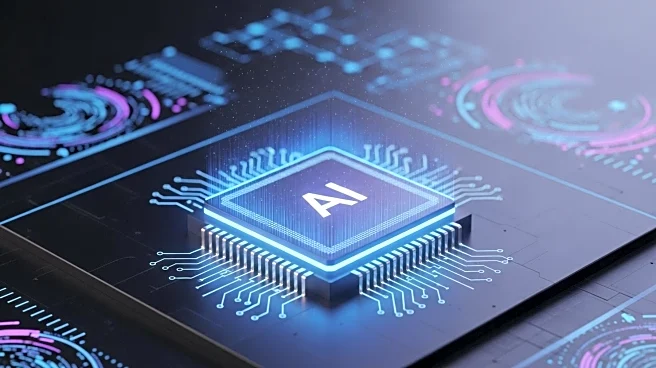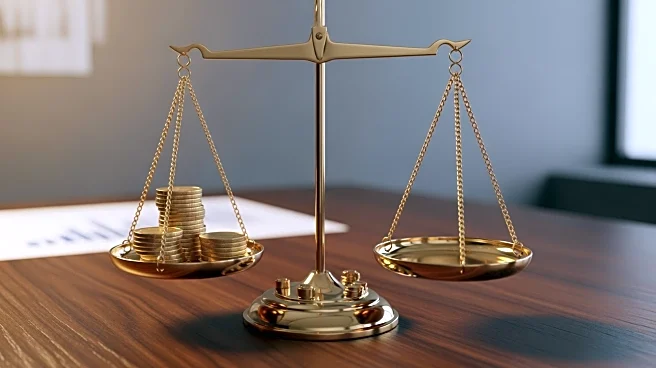What's Happening?
WME, a Beverly Hills talent agency, has decided to opt all its clients out of OpenAI's latest update to its text-to-video tool, Sora. This decision comes amid growing concerns in Hollywood about the use of artificial intelligence in creative processes. The Sora update introduces features such as sound effects and dialogue, and allows users to upload videos of humans to be placed in different AI-generated environments. WME's head of digital strategy, Chris Jacquemin, emphasized that artists should have control over their likeness and how it is used, prompting the agency to notify OpenAI of their decision. The move reflects broader anxieties in Hollywood about AI's potential to disrupt jobs in visual effects, acting, writing, and other creative fields.
Why It's Important?
The decision by WME highlights the tension between technological innovation and the protection of intellectual property rights in the entertainment industry. As AI tools like Sora become more sophisticated, they offer potential efficiencies in production but also raise concerns about the unauthorized use of artists' likenesses and the impact on traditional creative roles. This development could influence other talent agencies and studios to reconsider their stance on AI collaborations, potentially leading to more stringent regulations or industry standards regarding AI usage. The outcome of this situation could significantly affect how AI is integrated into Hollywood's creative processes and the protection of artists' rights.
What's Next?
OpenAI has indicated plans to provide rights holders with more granular control over the generation of characters, allowing them to specify how their likenesses can be used. This approach aims to address concerns raised by talent agencies and rights holders. As the industry navigates these challenges, further discussions and negotiations between AI companies and entertainment stakeholders are likely. The response from other major talent agencies and studios will be crucial in shaping the future of AI integration in Hollywood. Additionally, OpenAI's commitment to sharing revenue from video generation with rights holders could set a precedent for compensating artists for the use of their likenesses in AI-generated content.
Beyond the Headlines
The ethical implications of AI in creative industries are profound, as they challenge traditional notions of authorship and compensation. The controversy surrounding AI-generated characters, like Tilly Norwood, underscores the need for clear guidelines and ethical standards in AI development. As AI technology continues to evolve, it may redefine the boundaries of creativity and intellectual property, prompting a reevaluation of existing legal frameworks. The industry's response to these challenges will likely influence broader societal attitudes towards AI and its role in shaping cultural and artistic expression.









